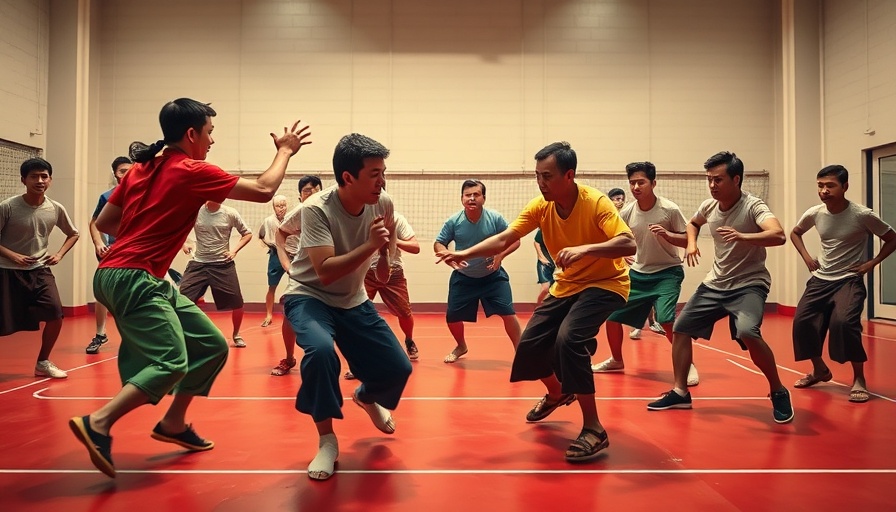
A Journey Through Time: Reviving Pok-ta-pok
The ancient ballgame of pok-ta-pok serves as a window into Mayan culture and the community spirit of Belize. As Maya descendants revive this age-old sport, they are not only rekindling their ancestral practices but also celebrating a unique cultural heritage that has persevered through centuries. Played on the Mayan ball courts now found throughout Mesoamerica, pok-ta-pok holds stories and traditions that connect past generations with the present.
A Ballgame of Myths and Sacrifices
Historically steeped in rituals, pok-ta-pok was both a game and a sacred event, often culminating in the dramatic sacrifices of certain players. This reflects the deep spiritual ties the Mayan civilization had with sports—a connection that historians argue enriched the community's cultural fabric. The ballgame was played not just for competition but as a way to honor deities, making it an interwoven aspect of Mayan life. As the revived sport fosters community among players today, it echoes these ancient practices.
Regaining National Pride
With Belize being the current champion of pok-ta-pok until recently, the revival of this ancient sport acts as a source of national pride. Each match invokes the competitive spirit akin to the ancient games where teams strove for glory. The enactment of traditional rituals during modern matches fosters an indomitable sense of identity among players and spectators alike. As young athletes engage in the sport, the renewed interest fuels national pride and reinforces community ties, essential for the preservation of their cultural heritage.
Cultural Networks Begin to Flourish
There’s an intrinsic value to the social connections fostered through shared activities like pok-ta-pok. The revival of this game has brought different communities together, showcasing the resilient bond among the Maya descendants. International play between teams from Central America and the United States has widened the circle of participation, allowing for cultural exchanges that enrich all involved. Spectators not only witness athletic prowess but also engage in a rich tapestry of cultural history and pride.
Lessons for Future Generations
The revival of pok-ta-pok is not merely a nostalgic look back at Mayan history; it’s a forward-thinking initiative aimed at educating young people. Workshops and community events promote the sport, explaining its significance while also integrating educational aspects about Mayan culture. These initiatives inspire youngsters to appreciate their roots and nurture a sense of responsibility for continuing these traditions, securing their place in the future.
Collective Benefits Beyond the Court
The positive impact of reviving traditional games like pok-ta-pok extends into health benefits. Regular participation provides young athletes with not only improved fitness but also valuable life skills, including teamwork and discipline. The shared experience fosters camaraderie that enhances emotional well-being, making these athletes enthusiasts of both cultural and personal engagement.
As the revitalization of pok-ta-pok progresses, it serves as an excellent example of how sports can bring individuals and communities together. There is a world of difference, during games, where excitement, culture, and shared history converge to shape the identity of the Belizean people. As they embrace both their past and their future, the message is clear: community bonds are strongest when rooted in cultural heritage.
To keep the spirit of this ancient game alive and thriving, support local events, encourage youth participation, or even learn to play yourselves. Engage with the heart and history of Belize’s rich culture through the excitement of pok-ta-pok!
 Add Row
Add Row  Add
Add 




Write A Comment